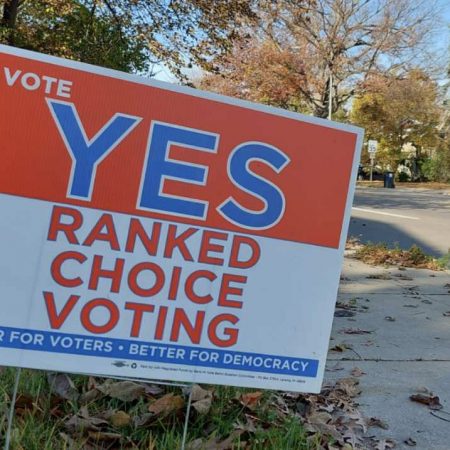Two months ago, a campaign to enact ranked choice voting in Michigan got off the ground.
Ranked choice voting lets you rank candidates in order of preference. If no one gets more than 50 percent at first, the last-place candidate is dropped and those votes go to your next choice.
Supporters say that the process, if approved, will strengthen our democracy.
But it didn’t take long before Republicans in Lansing and political advocates began attacking the electoral process.
Last month, state lawmakers passed a bill in the House along party lines to ban ranked choice voting. But even its Republican sponsor admitted that if voters approve it on the ballot, that would override the ban.
Nonetheless, state House Representative Rachelle Smit, who sponsored the legislation, says that ranked choice voting is confusing, and “only breeds skepticism, especially when every close contest invites lawsuits and recount battles.”
How are the leaders behind ranked choice voting responding to this political fight — and what’s their plan to get it on the 2026 ballot?
Joe Spaulding, campaign director for Rank MI Vote, spoke with Robyn Vincent about why he believes ranked choice voting will make our system more, not less, democratic.
The Metro reached out to the group, Stop RCV and state House Rep. Rachelle Smit about why they’re against ranked choice voting. Rep. Smit directed us to her Detroit News column, which says ranked choice voting threatens election integrity. Stop RCV sent us a statement that “ranked-choice voting makes every part of the election process more difficult,” for both voters and election administrators.
![] (6)](https://wdet.org/wp-content/uploads/2025/09/6-900x534.png)



